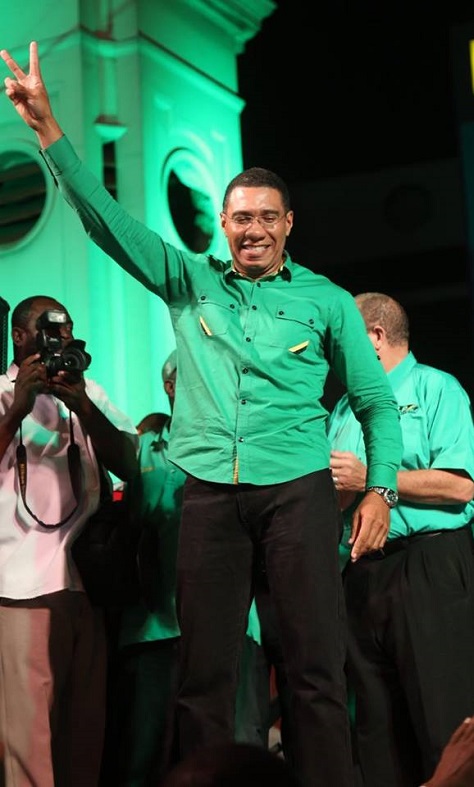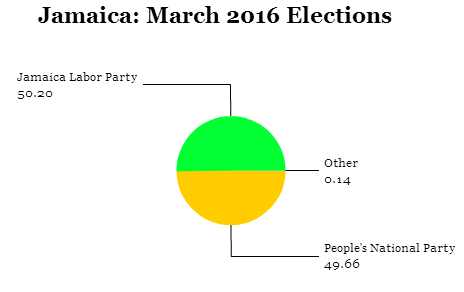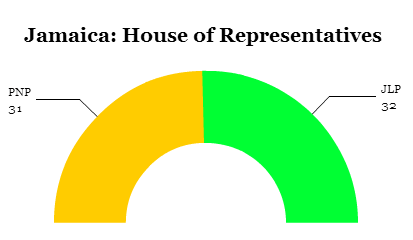
It’s not just European voters who are tired of austerity.![]()
In Jamaica, after years of a budget-cutting IMF bailout program, the famously polarized electorate narrowly ousted the country’s first female prime minister, Portia Simpson-Miller, in office since early 2012, and her nominally center-left People’s National Party. Instead, on February 26, voters chose the nominally center-right Jamaica Labour Party, bringing Andrew Holness, who briefly served as prime minister from November 2011 to January 2012, back to power.
Holness was sworn in as prime minister last Thursday.
The JLP won just 50.13% of the vote to the PNP’s 49.66%, and they hold only a narrow lead in the Jamaican House of Representatives, winning just 32 seats to the PNP’s 31 seats — a narrow result even by the standards of the razor-thin divide of Jamaican politics.
Holness pledged on the campaign trail to devote more resources to boost jobs and health care, though it wasn’t incredibly clear how that would necessarily work in light of ongoing obligations to rein in government spending. Jamaica is one of many Caribbean countries facing a difficult debt burden, despite the fact that economic growth has slowed throughout this decade as recession-weary Americans and Europeans shunned the opportunity for tourism.
Continue reading Holness sworn in after JLP win narrow victory in Jamaica


